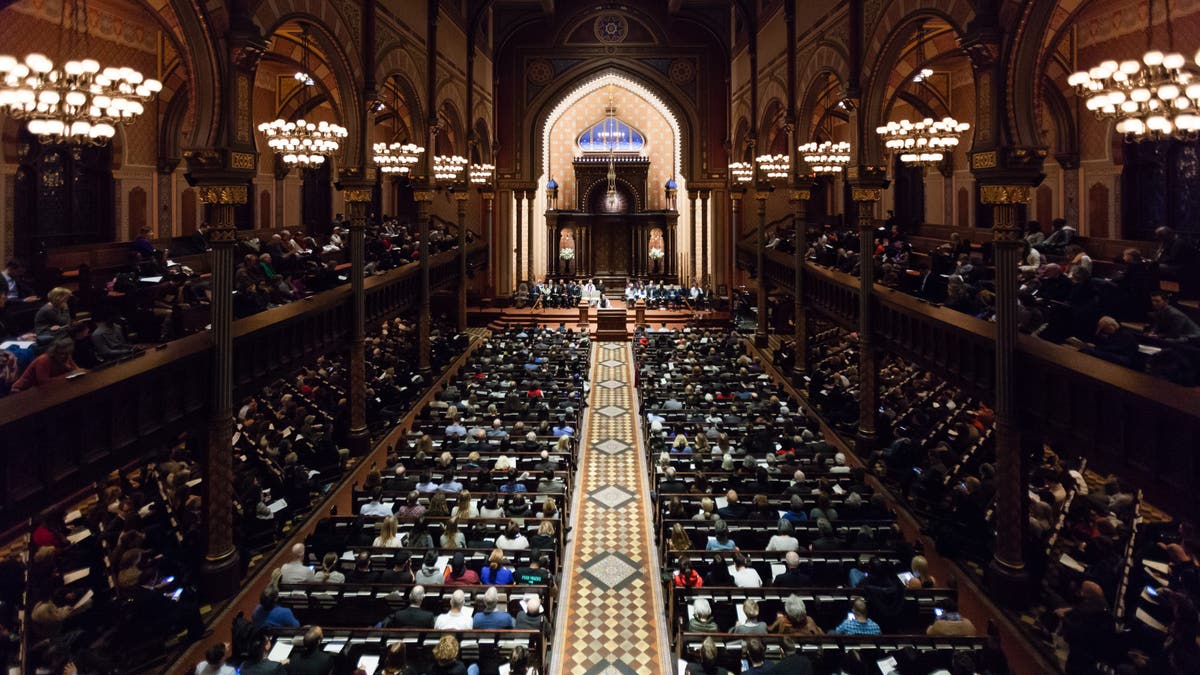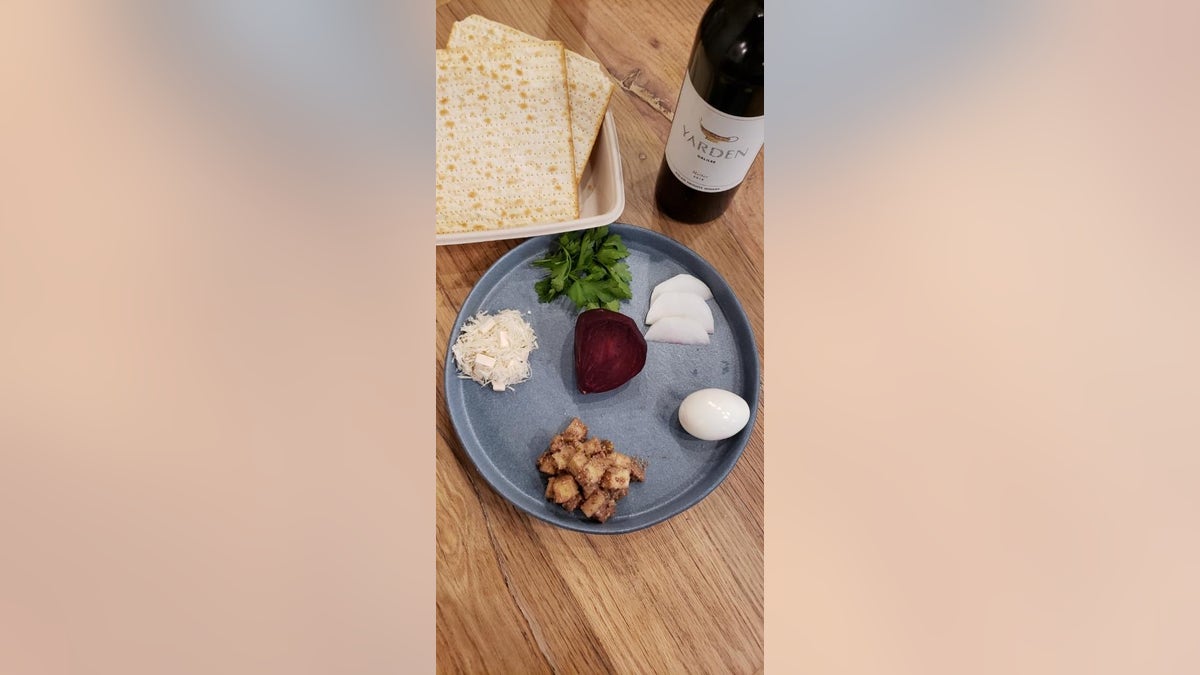America Together: Uplifting images of Americans pulling together during coronavirus pandemic
Every day and in every community, the coronavirus pandemic is bringing out the best in Americans. Take a look at some inspiring images of Americans pulling together in a time of crisis.
Get all the latest news on coronavirus and more delivered daily to your inbox. Sign up here.
The Hebrew word for Egypt, "mitzrayim," means a narrow place. It seems appropriate on the eve of Passover, as people across the nation are confined to their homes.
Traditionally, the Passover seder meal brings people together. In this climate of social distancing, however, those who celebrate have found new ways to be together, apart, through virtual seders.
To call a seder “just a dinner” is to ignore a story of liberation that has been retold for more than 3,000 years.

Central Synagogue, seen here in a March 2017 photo, is set to host three seders, each catering to a different age group. (Alan Barnett Photography)
“It is the central part of who we are as a people and we are commanded to tell the story,” Rabbi Steven Lowenstein said. “We, for years, have been doing it in our own creative ways and this year is kind of taking that to the whole next level.”
That next level: cyberspace. Online seders, or “Zoomovers” -- so-called by some for the video-conferencing tool used, Zoom -- are helping people usher in a sense of closeness.
Passover honors the freeing of enslaved Jewish people in Egypt. Lowenstein hopes to transcend literal and figurative narrow spaces by hosting virtual seders with his Illinois-based congregation Am Shalom. The synagogue has also created classes so people can learn how to host their own Zoom seder.
“We’re going into the widest space possible to share the experience with as many people as we can through modern technology,” he said.

A seder plate from Modern Bread & Bagel in Manhattan's Upper West Side.
In New York, Central Synagogue is set to host three seders, the first night of Passover, each catering to a different age group, and is expecting a big turnout.
“We’re engaging five times as many people this Seder as we have in our normal congregational seder,” Rabbi Dan Ross said.
CORONAVIRUS: WHAT YOU NEED TO KNOW
“We’re basically having a high holiday service like a Rosh Hashanah or a Yom Kippur service on a Friday, but on a Wednesday night in the middle of April.”
Life in quarantine this Passover means many will be celebrating while isolated from family. The ceremonial seder plate for Passover is filled with special ritual foods that may be daunting to prepare for a solo host.
Modern Bread & Bagel on Manhattan’s Upper West Side is preparing seder meal kits to make the pandemic Passover a little easier. It is a kosher dairy restaurant that is gluten-free and offers vegetarian options.
“One of our customers said, ‘Hey, you know, I haven't made a Seder at home in a long time. Can you help us put together a Seder plate?’ It wasn't something we were planning on offering, but we said, sure, you know what, we're here to help and we're happy to help,” said Joshua Borenstein, co-owner of Modern Bread & Bagel.
This is only the second Passover the shop has seen, as it’s been in business since February 2019. The restaurant has shifted its focus to meal and baking kits with its customers in mind. Many of Modern Bread & Bagel’s customers were forced to change travel plans for Passover.
“My wife and I are included in that group of people,” said Borenstein, whose wife Orly Gottesman is the restaurant’s baker.
“We're so used to having seder with our parents and we're not going to be doing that this year. So, there's a lot of folks who were definitely looking for help to make it easier on them and still be able to have a memorable and meaningful Seder.”
“People are really starving for connection,” Ross said. The question he hopes to answer is how to take the energy from virtual services, which have been well-received, and bring it back into in-person services once offered.
CLICK HERE TO GET THE FOX NEWS APP
Passover traditions like finding the afikomen where a piece of matzah is hidden so children can search for it is still being kept alive with digital adjustments. Lowenstein said he planned on using Venmo to issue prizes to winners who find the matzah while Central Synagogue is fashioning the afikomen into a Where’s Waldo-type hunt.
“Families can still gather together and even though we can’t be there personally we can still gather together to experience the power of the Passover story in our own way,” Lowenstein said.


